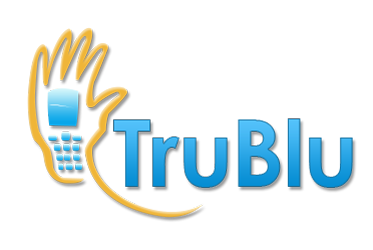Web development platforms have revolutionized the way websites and applications are built, making it simpler and more accessible for individuals and businesses alike. These platforms enable you to create, design, and manage custom websites with ease, even if you’re not an experienced programmer. From drag-and-drop builders to low-code solutions, there is a wide variety of options for every skill level and project requirement.
As a business owner, you’ll find numerous web development tools to suit your specific needs. Some popular options include WordPress, Wix, and Microsoft’s ASP.NET. When choosing the right platform, consider factors such as pricing, ease of use, customization capabilities, and the availability of support and resources. Also consider their trajectory in the market — is this a technology that has already peaked, or is it a platform that you can grow your business for years to come?
Ultimately, the best web development platform for you will depend on the goals you have for your website or application, as well as your level of technical expertise. No matter which option you select, the ongoing evolution of these platforms ensures that there will always be innovative solutions available to streamline your web development process and help you create the perfect digital presence.
Table of Contents
TogglePopular Web Development Platforms
In this section, we will discuss some popular web development platforms that can help you create and design custom websites. We will cover WordPress, Wix, Shopify, and Joomla.
WordPress
There is WordPress.com and WordPress the platform. Anyone can visit wordpress.com and start a free blog. Unfortunately, you will be limited in what you can do with third party plugins, customizing the design of your site, and other critical features for your business development and branding.
For that reason, WordPress.com should be avoided for your main business website.
HOWEVER, WordPress the platform is our #1 preferred choice for developing business websites! WordPress is the most popular website building platform. With its user-friendly interface and extensive plugin ecosystem, it enables you to create a variety of websites, from blogs to e-commerce stores.
WordPress is an excellent choice for beginning business owners who simply need to launch a presence online, and it offers experienced developers and agencies like Trublu Consulting the ability to deliver exactly what you need to thrive as a business in your market. We are WordPress specialists.
WordPress provides full control over the website customization, making it an ideal choice for various web development projects. We are WordPress designer experts, having designed hundreds of WordPress websites for clients, affiliate marketers, digital course creators, e-commerce, and more.
Wix
Wix is another popular website builder that allows you to create professional-looking websites with ease. Its drag-and-drop interface enables even those with no coding experience to quickly build a website. Notable features include:
- Wide range of templates
- Simple editing tools
- App market with additional functionalities
- SEO tools
Wix offers both free and paid plans, making it a flexible option for any budget.
Shopify
Shopify is an e-commerce-focused platform that enables you to build, customize, and manage online stores. It offers a comprehensive set of tools designed specifically for e-commerce businesses, including:
- A wide range of themes
- Inventory management system
- Payment processing options
- Marketing and SEO tools
Shopify plans range from $29/month for the Basic plan to $299/month for the Advanced plan. If you’re looking to create an online store, Shopify is a reliable and feature-rich option.
Joomla
Joomla is an open-source content management system (CMS) similar to WordPress. It’s suitable for creating a wide range of websites, from simple blogs to complex corporate portals. Key features include:
- A supportive community that has waned in size in recent years
- Extension directory with thousands of plugins and templates
- Multilingual support
Joomla requires a bit more technical knowledge compared to other platforms but offers greater flexibility and customization options in return.
However, let’s briefly compare Joomla to WordPress — Joomla has about 3% of the websites online… compared to 43% for WordPress!! This translates to more options available for YOU, the business owner.
Programming Languages for Web Development
When it comes to web development, choosing the right programming language is crucial for a successful project. In this section, we will discuss five popular programming languages for web development: HTML and CSS, JavaScript, Python, Ruby, and PHP. Each sub-section will briefly explain the language and its role in web development.
HTML and CSS
HTML (Hypertext Markup Language) and CSS (Cascading Style Sheets) form the foundation of any website. HTML is used to define the structure and content of a web page, while CSS is used to style and format it.
As a web developer, you need to be familiar with HTML and CSS because they are essential for crafting the user interface and user experience of the site. Some key features include:
- HTML: used for creating tags, attributes, and elements to organize content
- CSS: used for styling and positioning the HTML elements on the page
JavaScript
JavaScript is a scripting language that enables you to add interactivity and dynamic content to your website. It is an essential tool for web developers, as it allows you to create animations, manipulate the DOM (Document Object Model), and handle events such as clicks or keypresses.
In recent years, JavaScript has expanded beyond the browser and into server-side development with the help of technologies like Node.js. With JavaScript, you can:
- Create interactive elements and animations
- Validate user input and handle events
- Build powerful client-side and server-side applications
Python
Python is a versatile, easy-to-learn programming language with a strong emphasis on readability and simplicity. While not exclusively a web development language, Python is widely used for building web applications, courtesy of frameworks like Django and Flask.
These frameworks enable developers to create and manage web applications more efficiently. Python offers:
- A large standard library and numerous third-party modules
- Great support for data processing and manipulation
- Scalability and flexibility for various types of applications
Ruby
Ruby is an object-oriented, dynamic programming language with an emphasis on simplicity and productivity. Ruby on Rails, a popular web application framework, has made Ruby a top choice for web developers who want to create robust, scalable applications with minimal code.
Ruby on Rails provides features that simplify common development tasks, including:
- An MVC (Model-View-Controller) architecture
- Convention over configuration principles
- A wide range of libraries and plugins for added functionalities
PHP
PHP (Hypertext Preprocessor) is an open-source, server-side scripting language that has been widely used in web development for over two decades. Known for its ease of use and integration with HTML, PHP is often employed for creating content management systems, web applications, and more.
With PHP, web developers can:
- Easily generate HTML content and interact with databases
- Develop web applications quickly with various supported frameworks
- Benefit from a large community and extensive documentation
Backend Web Development Frameworks
Django
Django is a high-level Python web framework that promotes rapid development and clean, pragmatic design. As a Python-based framework, it offers a variety of libraries and tools, making it easier for you to create robust web applications. Since it’s open-source and free, you can benefit from a large community that contributes to its growth and development.
Ruby on Rails
Ruby on Rails, or simply Rails, is another popular backend web development framework that makes it easier for you to build web applications. Using the Ruby language, Rails follows the convention over configuration principle, which means you can avoid a lot of boilerplate code while focusing on the functionality of your application. With its solid foundation and resources like the Rails community and available gems, you can rapidly develop complex web applications.
Node.js
Node.js is not a framework but a JavaScript runtime built on Chrome’s V8 JavaScript engine. It allows you to build fast, scalable network applications and enables JavaScript to run on the server-side. One popular framework used with Node.js is Express.js, which is designed to be minimal, flexible, and easy to use. With Node.js and Express.js, you can take advantage of the thriving JavaScript ecosystem and create applications with excellent performance.
Laravel
Laravel is a PHP web framework created to streamline the development of modern web applications. It follows the Model-View-Controller (MVC) architectural pattern and provides an elegant syntax, making it enjoyable for developers to work with. Laravel comes with built-in tools for common tasks, such as authentication, routing, and caching, which makes the development process more efficient.
ASP.NET
ASP.NET is a popular web development framework developed by Microsoft. It allows you to build dynamic, data-driven web applications using the .NET platform and languages like C# or Visual Basic. With its extensive set of libraries and tools, robust performance, and seamless integration with other Microsoft technologies, ASP.NET is a powerful choice for web development in the Microsoft ecosystem.
In summary, each of these backend web development frameworks offers unique advantages that cater to different development needs and preferences. By understanding their strengths and weaknesses, you can make informed decisions about which framework best suits your web development projects.
Frontend Web Development Libraries and Frameworks
Frontend web development is all about creating user interfaces and user experiences. These libraries and frameworks are designed to assist you in building functional, attractive, and efficient UIs. To help you decide which option suits your needs, let’s explore some of the prominent choices.
React
React is a popular JavaScript library developed by Facebook for creating interactive UIs. The library emphasizes a component-based architecture, which simplifies UI development and encourages reusable code. Features of React include:
- Virtual DOM: React optimizes performance by only rendering the components that have changed, resulting in a smoother user experience.
- JSX Syntax: This HTML-like syntax allows you to write JavaScript code that renders UI components, further simplifying development.
- Ecosystem: React’s large ecosystem offers a vast array of tools, libraries, and resources to extend its functionality.
Angular
Angular is a popular, feature-rich frontend framework developed by Google. Suited for creating scalable and dynamic single-page applications, Angular has a robust set of development tools and best practices. Key features include:
- Two-Way Data Binding: Automatically syncs data between the view and the model, allowing for easier state management.
- Dependency Injection: Angular streamlines adding dependencies in a modular fashion, reducing the need for manual code wiring.
- Directives: Custom HTML attributes that enhance the functionality of existing HTML elements, making development more declarative.
Vue.js
Vue.js is another JavaScript framework gaining popularity for its flexibility and ease of integration with other projects. Developed by a former Google engineer, Vue.js aims to take the best aspects of React and Angular. Features include:
- Lightweight: With a smaller file size compared to Angular and React, Vue.js is quicker to load and render on the client-side.
- Flexible: Vue.js can be easily integrated into existing projects or used for an entire application, making it versatile for diverse development scenarios.
- Component-based: Similar to React, Vue encourages reusable code through a component-based architecture.
Bootstrap
Bootstrap is a widely-used CSS framework created by Twitter. It focuses on responsive design and provides a rich set of pre-built components, making it an excellent choice for rapid UI development. Benefits of Bootstrap include:
- Responsiveness: The framework ensures your UI adapts to various device sizes through the use of fluid grids, flexible images, and media queries.
- Customization: Bootstrap offers a variety of themes, templates, and components, allowing you to tailor the framework to your project’s aesthetics.
- Extensibility: With ecosystem support from plugins and extensions, you can enhance Bootstrap’s functionality to meet your specific requirements.
Consider your project’s requirements and your familiarity with these libraries and frameworks when choosing which one suits your needs.
Content Management Systems
Content management systems (CMS) are essential tools for web development, as they allow you to create, manage, and customize your website without requiring extensive coding knowledge. In this section, we will delve into three popular CMS platforms: Drupal, Magento, and PrestaShop.
Drupal
Drupal is a powerful and flexible CMS suitable for various types of websites, including blogs, e-commerce sites, and corporate websites. It’s built on a modular architecture, allowing you to extend its functionality using thousands of available modules. Some key benefits of Drupal include:
- Scalability: Drupal can handle high traffic and content-rich websites, making it suitable for enterprises and large organizations.
- Security: Drupal is known for its robust security, protecting your website from various online threats.
- Flexible content types: Create and manage custom content types according to your needs, such as articles, products, or events.
However, the learning curve for Drupal might be steeper for beginners compared to other CMS platforms.
Magento
Magento is a popular CMS specifically designed for e-commerce websites. It’s a powerful platform that can cater to diverse business needs and accommodate a wide range of online store sizes. Here are some notable features of Magento:
- Highly customizable: With an extensive range of extensions and themes, you can tailor your store’s appearance and functionality to match your brand.
- SEO-friendly: Magento provides built-in SEO features to help your store rank higher in search engine results.
- Mobile optimization: Magento ensures that your e-commerce site is mobile-friendly, enhancing your customers’ shopping experience on smartphones and tablets.
One drawback of Magento could be its complexity, which might require assistance from a Magento expert or developer.
PrestaShop
PrestaShop is another e-commerce-oriented CMS that’s user-friendly and ideal for small to medium-sized businesses. It’s an open-source platform with a strong community of users and developers. Some advantages of using PrestaShop include:
- Intuitive interface: The easy-to-use dashboard allows you to manage your online store effortlessly.
- Vast selection of modules: Over 5,000 add-ons and themes are available for customization, enabling you to create a unique shopping experience for your customers.
- Multilingual support: PrestaShop supports multiple languages and currencies, making it suitable for international e-commerce sites.
However, PrestaShop may have limitations when handling large-scale e-commerce websites, which could impact its performance.
Web Hosting – Shared / Discount Hosting
Choosing the right web hosting service is crucial for the success of your website. In this section, we will discuss three popular web hosting providers: Bluehost, HostGator, and SiteGround.
There’s a big “but…” coming so keep reading!
Bluehost
Bluehost is a popular choice for beginners and developers alike. They offer a range of hosting plans, starting at $2.75 per month for the first 36 months, with a 30-day money-back guarantee. Here are some notable features and benefits of Bluehost:
- Easy-to-use, feature-rich control panel
- One-click WordPress installation
- Free domain and SSL certificate
- 24/7 customer support
HostGator
HostGator is another reliable option for web hosting services. Known for its affordability and flexibility, HostGator offers various hosting plans to meet your needs. Some key features of HostGator include:
- User-friendly control panel
- Free domain and SSL certificate
- One-click application installation
- 45-day money-back guarantee
SiteGround
SiteGround is a top choice for developers and businesses requiring excellent performance and advanced features. With a focus on speed and security, SiteGround ensures a smooth experience for your website visitors. Here are a few reasons to consider SiteGround:
- Customized server setup for speed optimization
- Free SSL certificate and daily backups
- 24/7 customer support
- Flexible plans designed to fit your needs
When choosing a web hosting service, consider your specific needs and budget, as well as the features and support each provider offers.
So far, we have been discussing “shared” hosting solutions. It’s cheap and so it appeals to a lot of business owners.
Don’t do it. Think of the tool you use in your business EVERY DAY. Now imagine if that tool was dull, breaks all the time, and just provides endless frustration for you. Do you want to spend your days listening to customers complain that they can’t access your website, or spend countless hours on tech support?
Pitfalls of Shared Hosting
Shared hosting will give you headaches.
Shared hosting and discount hosting might seem like a good idea for those looking to save money on web hosting. However, these types of hosting plans often come with significant drawbacks that can negatively impact the performance and security of your website.
One major concern with shared hosting is that you are sharing server resources with potentially thousands or even hundreds of thousands of other websites. This can lead to slower loading times and reduced performance for your website. Additionally, if one of the other websites on the shared server experiences a security breach or malware infection, it could potentially spread to your website as well.
Discount hosting providers may also cut corners on security measures and customer support, leaving your website vulnerable to hacking attempts and other security threats. In summary, while shared and discount hosting plans may seem like a good deal, they often come with significant risks and drawbacks that can ultimately harm your website’s performance and security.
Optimized Business Hosting
A hosting plan that provides a dedicated cPanel, operates on a fast cloud server, and limits the number of websites on that server can offer significant benefits for business owners.
With a dedicated cPanel, you have complete control over your website and can easily manage your files, databases, and other settings. This level of control can help streamline your website management process and make it easier to troubleshoot any issues that may arise.
Hosting your website on a fast cloud server can also lead to faster loading times and improved performance. Cloud servers are designed to handle high traffic loads and can scale up or down based on your website’s needs. This means that your website can handle traffic spikes without slowing down or crashing.
Limiting the number of websites on a server can also help improve website performance and security. With fewer websites on the server, there is less competition for resources, which can lead to faster loading times and improved website stability. Additionally, hosting providers that operate a closed network of only business websites can help eliminate the risk of sharing a server with “bad neighbors” that can negatively impact your website’s performance and even get your website blacklisted.
Overall, a hosting plan that offers a dedicated cPanel, fast cloud server, and limited website sharing can provide website owners with improved performance, better security, and a more streamlined website management experience.
TruBlu Web Hosting
TruBlu Consulting proudly offers exactly this type of high level hosting. If you priced it in the open market, it would cost you $360/year. But we provide this premium webhosting FREE to every web design client for their first year, and then offer the renewal for a fraction of the market value.
Why do we do that? Simply because we support local business and we got tired of seeing business owners ripped off by terrible hosting. This was our way to right a wrong.
Code Editors and IDEs for Web Development
In the web development world, choosing the right code editor or integrated development environment (IDE) can make your work more efficient and enjoyable. In this section, you will learn about some of the popular choices and their features.
Visual Studio Code
Visual Studio Code (VSCode) is a powerful, open-source code editor developed by Microsoft. It’s available for Windows, Mac, and Linux. This editor is known for its wide range of extensions and support for various programming languages, including JavaScript, Node.js, TypeScript, and more.
VSCode offers features like:
- Syntax highlighting and code completion
- Customizable interface and themes
- Git integration
- Debugging support
- Live code collaboration with the Live Share extension
To get started with Visual Studio Code, download the software for your platform.
Sublime Text
Sublime Text is a lightweight, cross-platform code editor that is popular for its speed and performance. It supports various programming languages and markup languages for web development.
Important features of Sublime Text include:
- Multiple cursors and selections
- Command palette for quick access to functions
- Customizable interface with themes and color schemes
- Useful plugins and package control
- Instant project switch
You can download Sublime Text and start using it for your web development projects.
Atom
Atom is another popular open-source code editor developed by GitHub. It’s customizable and supports a great number of programming languages. Atom offers features like:
- Built-in package manager
- Smart autocompletion and syntax highlighting
- Multiple panes for splitting the interface
- Find and replace functionality with support for regular expressions
- Collaborative coding with the Teletype package
Get started with Atom by downloading it for your operating system.
WebStorm
WebStorm is a powerful IDE made by JetBrains, specifically designed for JavaScript development. It provides advanced features like:
- Coding assistance and intelligent code completion
- Refactoring support and error detection
- Built-in debugger for client-side and server-side JavaScript
- Integration with version control systems like Git
- Support for testing tools like Jest and Karma
WebStorm requires a paid license, but you can try it for free with a 30-day trial.
These code editors and IDEs will help elevate your web development experience. Remember to explore their features and choose the one that best fits your needs and preferences.
Version Control Systems
Version control systems are an essential aspect of web development, as they help track changes in code over time, streamline the development process, and manage code for multiple projects. In this section, we will discuss three widely used version control systems: Git, Mercurial, and Subversion.
Git
Git is a free, open-source distributed version control system known for its speed, efficiency, and versatility in handling projects of all sizes. With its lightweight footprint and fast performance, Git is easy for you to learn and incorporate into your web development workflow. Some key features include:
- Distributed architecture, which allows for multiple repositories
- Powerful branching and merging capabilities
- Fast, efficient handling of large projects
You can find various Git hosting solutions, such as GitHub, GitLab, and Bitbucket, to host your master repository where developers commit their code changes.
Mercurial
Mercurial is another open-source, distributed version control system offering a more user-friendly interface and additional features compared to Git. Its simplicity and easy-to-understand commands make it an excellent choice for smaller teams or less experienced developers. Mercurial’s notable features include:
- Intuitive command set for easier learning curve
- Efficient handling of binary files
- Extensions for additional functionality
Similar to Git, Mercurial also has hosting solutions available, such as Bitbucket and SourceForge, where you can manage your repositories.
Subversion
Subversion (SVN) is a centralized version control system that requires you to work with a single repository. Although it is less flexible compared to Git and Mercurial, it offers a more straightforward approach and is well-suited for linear workflows. Subversion provides the following advantages:
- Simple directory structure for repositories
- Fine-grained access control for security
- Support for external references (svn)
Subversion hosting services are available, such as Apache Subversion and VisualSVN, to help you manage your repositories.
As a web developer, choosing the right version control system depends on your workflow, team size, and project requirements. Familiarize yourself with the strengths and limitations of each system to make an informed decision that best suits your needs.
Web Development Communities and Resources
In this section, we will discuss several prominent web development communities and resources that can be beneficial for your growth as a developer.
Stack Overflow
Stack Overflow is an essential resource for web developers, offering a vast knowledge base to help you solve coding problems. The platform allows you to ask questions and get answers from experienced developers worldwide. Additionally, you can also contribute by answering questions and enhancing your reputation within the community. Don’t hesitate to participate in discussions and learn from your peers on Stack Overflow.
MDN Web Docs
The MDN Web Docs, previously known as the Mozilla Developer Network, is a comprehensive resource providing guides, references, and tutorials for web technologies. It covers HTML, CSS, JavaScript, and other modern web development practices. Make sure to use MDN Web Docs to enhance your understanding of web standards and best practices.
GitHub
GitHub serves as a collaboration platform where developers can host, share, and collaborate on open-source projects. It is an invaluable resource for discovering new tools, libraries, and frameworks to incorporate into your projects. By contributing to repositories or creating your own projects, you can showcase your skills and even improve your coding abilities through collaboration with other developers.
FreeCodeCamp
FreeCodeCamp is a non-profit organization that offers interactive coding lessons, projects, and certifications for various web development technologies, including HTML, CSS, JavaScript, and database management systems. It features a welcoming community, where learners can interact with experienced professionals, share resources, and seek guidance on their journey to become better developers. Utilize FreeCodeCamp’s curriculum and community to bolster your web development skills.
Frequently Asked Questions
What are the top web development tools for beginners?
As a beginner, you might want to start with easy-to-use tools for web development. Some popular options are:
- Visual Studio Code: A free, open-source code editor with built-in support for HTML, CSS, and JavaScript.
- Bootstrap: A responsive front-end framework to help you create modern and responsive user interfaces quickly.
- GitHub: A web-based platform for version control and collaboration, allowing you to work on projects and collaborate with others.
What are the best web development software options, both free and paid?
Some of the best web development software options available include:
- Free options: Visual Studio Code, Atom, and Brackets.
- Paid options: Sublime Text, WebStorm, and Adobe Dreamweaver.
Which web development courses are considered industry leaders?
For learning web development, consider taking courses from reputable providers such as:
- FreeCodeCamp: A non-profit organization offering a comprehensive and hands-on curriculum in web development, all for free.
- MDN Web Docs: Mozilla’s recently redesigned resource for learning web development straight from the creators of Firefox.
- Coursera: Offers a range of web development courses, including the popular “Web Development Specialization” by the University of Michigan.
What are the most effective web development tools and techniques?
To be effective in web development, you should be familiar with some of the popular tools and techniques:
- Version control: Git and GitHub are essential for managing your code and collaborating with others.
- Front-end frameworks: Bootstrap and Foundation aid in creating responsive designs with ease.
- Browser developer tools: Google Chrome and Mozilla Firefox provide built-in tools for inspecting and debugging your code.
Which Android app is recommended for web development?
For web development on an Android device, consider using an app like AIDE Web. This app allows you to create and edit HTML, CSS, and JavaScript files while providing features such as live preview and syntax highlighting.
What are the 3 main categories of web development?
The three main categories of web development are:
- Front-end development: This involves building the user interface and user experience using HTML, CSS, and JavaScript.
- Back-end development: This focuses on server-side logic, handling data storage, and managing communication between the front-end and back-end.
- Full-stack development: This entails working with both front-end and back-end technologies, addressing all aspects of web development.




